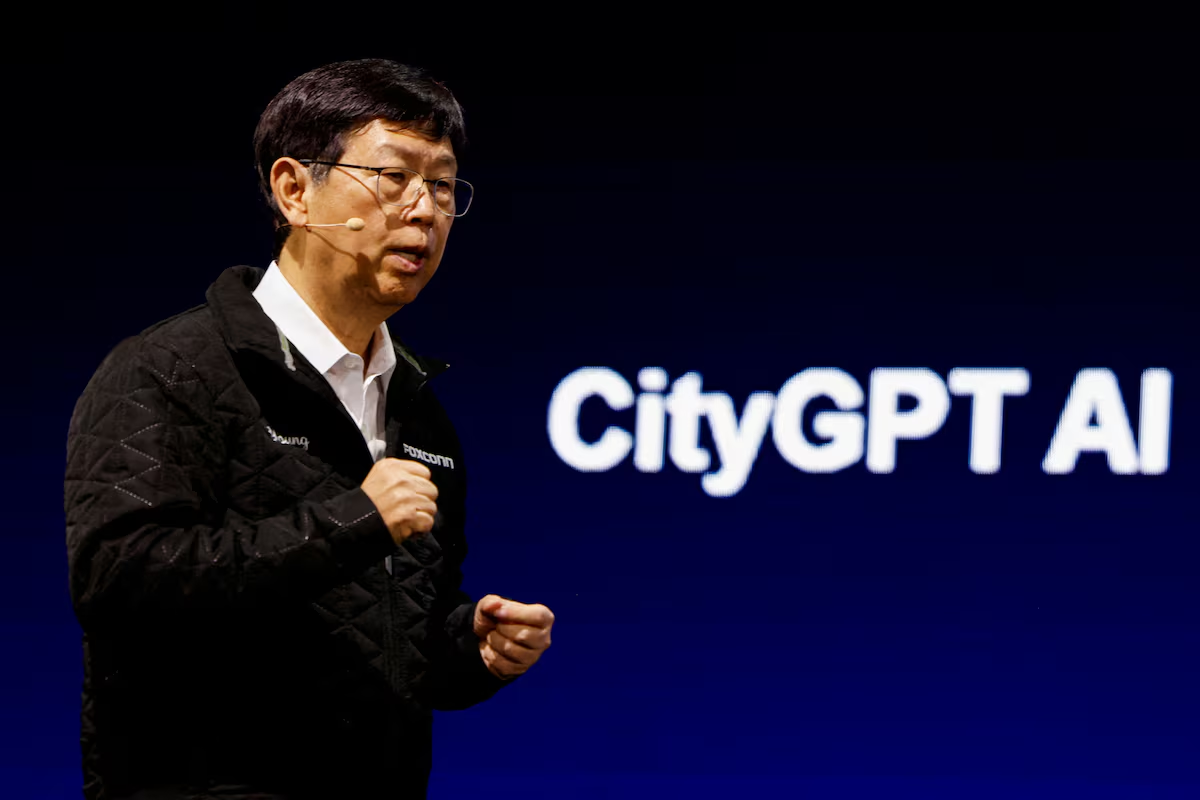For more than a decade, Foxconn’s Apple era defined both the company and Taiwan’s place in the global technology supply chain. Known as the iPhone factory, Foxconn rose to global dominance by assembling millions of Apple devices. But times have changed.
In the second quarter of 2025, Foxconn’s revenue from AI servers and cloud networking products officially surpassed earnings from consumer electronics like iPhones. This turning point signals not only Foxconn’s own transformation but also a broader shift sweeping through Taiwan’s tech industry.
From Apple Assembly Line to AI Powerhouse
Foxconn’s fortunes were once tied tightly to Apple. At its peak, over 50% of Foxconn’s revenue depended on assembling iPhones and other consumer gadgets. That dependency came with risks Apple’s relentless cost cutting, supply chain pressures, and slowing global smartphone sales.
The company began diversifying years ago, moving into electric vehicles, semiconductors, and data infrastructure. But it is AI servers built for cloud giants and powered by chips from Nvidia that have propelled Foxconn into a new growth trajectory.
Industry reports show that in Q2 2025, revenue from AI and cloud servers grew by more than 30%, while consumer electronics slipped into single digit growth. That crossover moment marked the fading of Foxconn’s Apple era.
One of Foxconn’s most significant moves has been aligning with Nvidia, the chipmaker powering the AI boom. Together, they have developed AI servers, data center racks, and even AI factories specialized systems designed to handle large scale model training.
For example, Nvidia recently highlighted Foxconn as a critical partner in scaling global demand for AI infrastructure. By manufacturing these systems, Foxconn not only secures a place in one of the fastest growing markets but also steps out of Apple’s long shadow.
This partnership demonstrates how Taiwan’s manufacturers are repositioning themselves at the heart of the AI economy rather than remaining assembly contractors for consumer gadgets.
Why the Shift Matters
Technology analysts see Foxconn’s pivot as more than a business adjustment it’s a survival strategy. Dr. Lin Mei Hua, Professor of Global Supply Chain at NTU, explains Foxconn’s reliance on iPhones left it vulnerable.
By moving into AI servers, Foxconn is tapping into a market expected to grow at double digit rates for the next decade. This diversification is essential for long term resilience.
James Hsu, Senior Analyst at TrendForce, notes The AI server market is becoming Taiwan’s new semiconductor story. Companies like Foxconn, Wistron, and Quanta are leading the charge, ensuring that Taiwan’s tech sector remains indispensable in the global value chain.
In short, the fading of Foxconn’s Apple era reflects a conscious shift toward industries with higher margins and stronger growth potential.
Voices Inside the Transformation
Employees inside Foxconn’s plants describe the difference firsthand. Wei Cheng, a production engineer who spent 10 years on iPhone assembly lines, recently transferred to the server division.
In the iPhone line, everything was about speed and perfection tens of thousands of units per day. In the AI server line, it’s different. Each system is larger, more complex, and requires specialized knowledge. It feels like we are building the future, not just another smartphone, he shared.
Such transitions highlight how Foxconn is retraining its workforce, moving from repetitive consumer electronics to advanced computing infrastructure. This has also raised wages for engineers and technicians working in AI related production.
Taiwan’s Broader Tech Evolution
Foxconn’s story fits into a larger pattern. Taiwan’s tech sector has been quietly reorienting itself away from consumer gadgets and toward enterprise and AI driven technologies. Companies like Quanta Computer and Wistron, once known for laptops, now derive most of their profits from servers and data center hardware.
Slowing Smartphone Market Global smartphone shipments peaked in 2016 and have been relatively flat since, limiting growth opportunities.
Exploding AI Demand Generative AI, cloud services, and edge computing are driving unprecedented demand for high performance servers.
Geopolitical Realities Taiwan’s role in global supply chains is under scrutiny amid U.S and China tensions. By moving into AI infrastructure, Taiwan strengthens its bargaining power as a critical partner to both Western and Asian firms.
Foxconn’s pivot is not just about profits it’s about ensuring Taiwan’s continued relevance in the next wave of technological innovation. Of course, the transition is not without risks.
AI servers are more capital intensive than smartphones, requiring new factories, supply chains, and skilled labor. Competition is also heating up, with rivals in South Korea and the U.S aiming to capture market share.
Additionally, Apple remains a major client. The fading of Foxconn’s Apple era doesn’t mean the partnership is over, but rather that it is no longer the company’s lifeline. Managing this balancevkeeping Apple happy while betting big on AI will be one of Foxconn’s greatest tests.
A Defining Moment for Foxconn and Taiwan
Foxconn’s second quarter earnings mark a symbolic end to one chapter and the beginning of another. The company that became famous for building the iPhone now finds its identity in AI servers and next generation computing.
For Taiwan, this evolution underscores its adaptability. Just as it became indispensable in semiconductors, it is now positioning itself at the core of AI infrastructure.
As Dr. Lin put it This is Taiwan’s moment to redefine its global role. The world may have known us as the iPhone island, but in the AI era, we are the backbone of digital intelligence.
The fading of Foxconn’s Apple era may be bittersweet for some, but it is also proof that reinvention is possible even for the world’s largest contract manufacturer.
